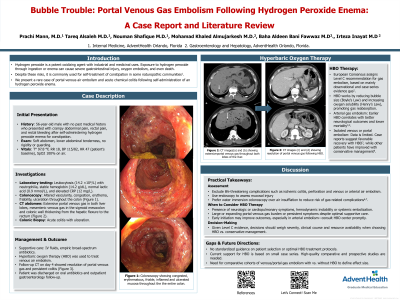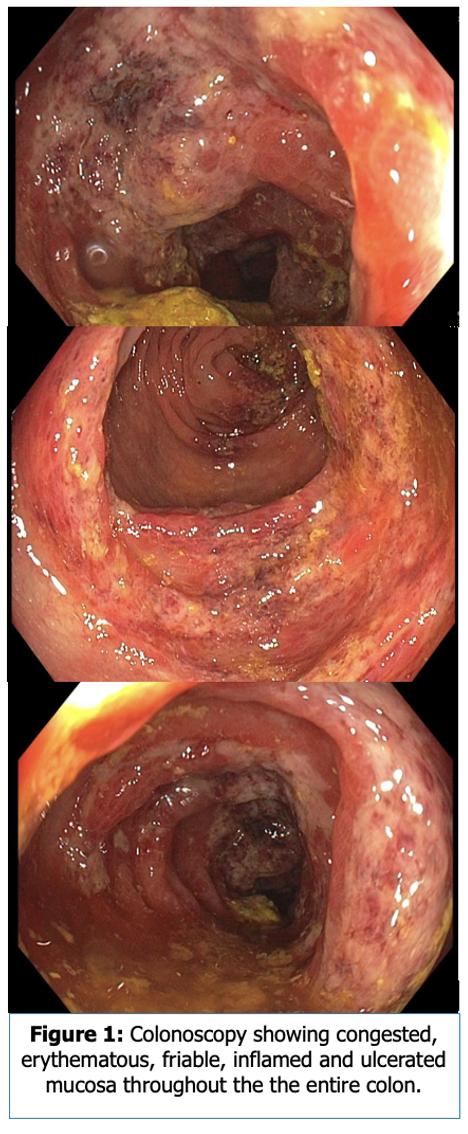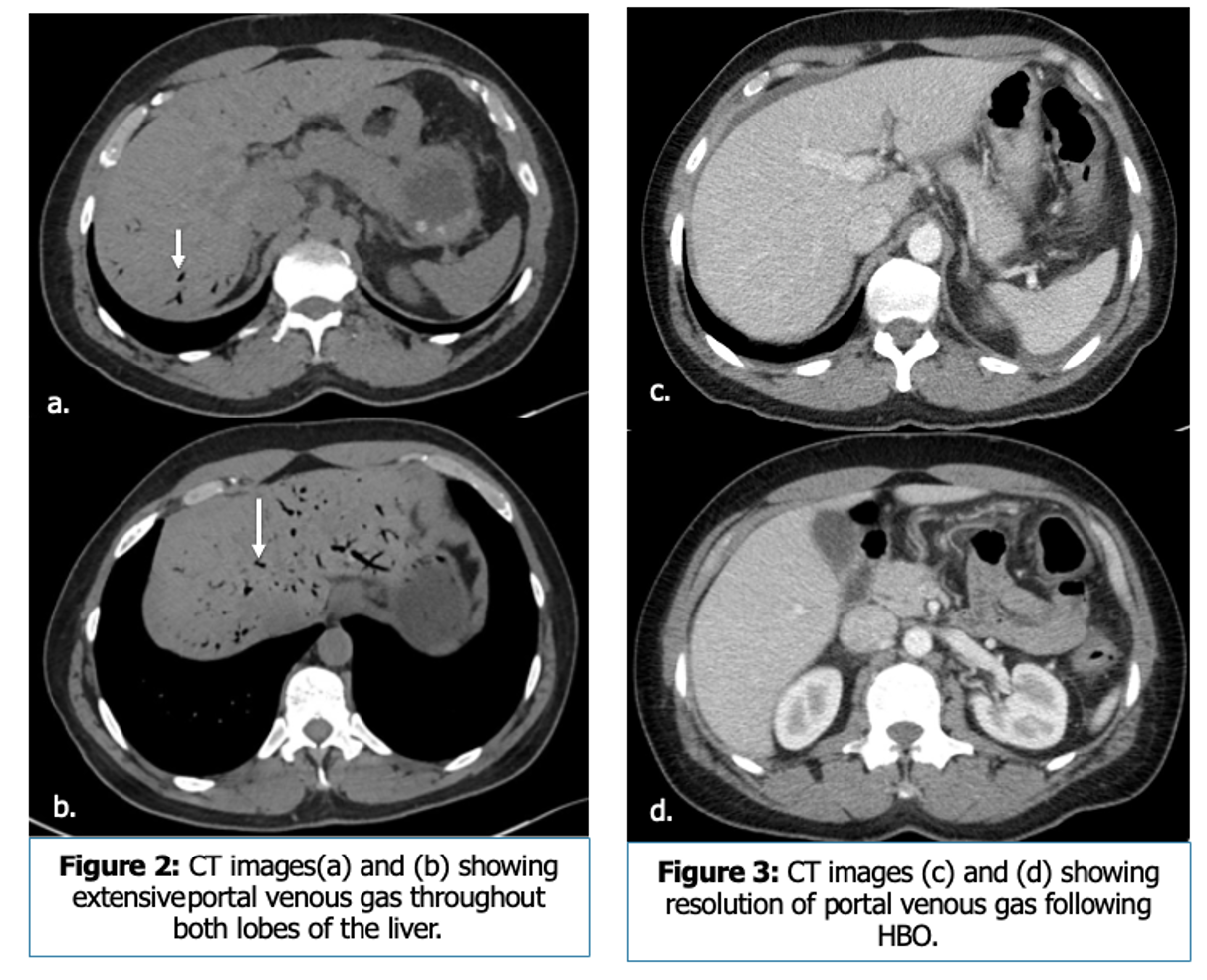Tuesday Poster Session
Category: Colon
P4701 - Bubble Trouble: Portal Venous Gas Embolism Following Hydrogen Peroxide Enema – A Case Report and Literature Review

.jpg)
Prachi Mann, MD
Department of Internal Medicine, Adventhealth Orlando
Orlando, FL
Presenting Author(s)
Prachi Mann, MD1, Tareq Alsaleh, MD2, Nouman Shafique, MD2, Mohamad Khaled Almujarkesh, MD3, Baha Fawwaz, MD3, Irteza Inayat, MD4
1Department of Internal Medicine, Adventhealth Orlando, Orlando, FL; 2Department of Internal Medicine, AdventHealth Orlando, Orlando, FL; 3Department of Gastroenterology and Hepatology, AdventHealth Orlando, Orlando, FL; 4Department of Gastroenterology and Hepatology, Adventhealth Orlando, Orlando, FL
Introduction:
Hydrogen peroxide (H₂O₂) is a potent oxidizing agent with industrial and medicinal uses. Ingestion or rectal administration can lead to serious complications, including gastrointestinal injury, oxygen embolism, and death. Despite these risks, some naturopathic communities use H₂O₂ enemas for constipation. We present a rare case of portal venous air embolism and chemical colitis following self-administration of a H₂O₂ enema.
Case Description/Methods:
56-year-old male with no significant history presented with crampy abdominal pain, rectal pain and rectal bleeding after using a H₂O₂ enema for constipation. Vital signs were stable and physical exam revealed a soft abdomen with lower abdominal tenderness without guarding. Labs showed neutrophilic leukocytosis at 14.2, hemoglobin of 14.2 g/dL, normal anion gap metabolic acidosis, lactate of 0.9 mmol/L, and CRP of 12 mg/L. CT abdomen showed extensive portal venous gas in both hepatic lobes and mesenteric venous gas in the sigmoid mesocolon, along with colonic wall thickening from the hepatic flexure to the rectum. He was diagnosed with chemical colitis and venous air embolism secondary to H₂O₂ enema. Colonoscopy using a water immersion technique was done, revealing congested, erythematous, friable, inflamed and ulcerated mucosa throughout the colon. Biopsy confirmed acute colitis with ulceration. The patient was treated with IV fluids, broad-spectrum antibiotics and hyperbaric oxygen (HBO) therapy. Follow-up CT after 4 days showed resolution of venous gas but persistent colitis. He was discharged on oral antibiotics with GI follow-up.
Discussion:
We present a case of portal and mesenteric venous air embolism with chemical colitis due to H₂O₂ enema. Initial evaluation should exclude ischemic colitis, perforation, and embolism through physical exam and imaging. Endoscopy helps assess injury severity. Typical findings include mucosal friability, ulceration, necrosis and the “snow white” sign. Treatment is largely supportive. HBO therapy may improve outcomes by reducing embolic complications as demonstrated in case series, though high-quality evidence remains limited. This case highlights the dangers of H₂O₂ enemas and the potential benefits of HBO therapy. The growing use of H₂O₂ in alternative medicine has led to the increased availability of high-concentration H₂O₂. Given its risks, including colonic injury and life-threatening complications, public education and physician awareness are crucial to preventing misuse and promoting safety.


Figure 3: CT images (c) and (d) showing resolution of portal venous gas following Hyperbaric oxygen therapy.
Disclosures:
Prachi Mann, MD1, Tareq Alsaleh, MD2, Nouman Shafique, MD2, Mohamad Khaled Almujarkesh, MD3, Baha Fawwaz, MD3, Irteza Inayat, MD4. P4701 - Bubble Trouble: Portal Venous Gas Embolism Following Hydrogen Peroxide Enema – A Case Report and Literature Review, ACG 2025 Annual Scientific Meeting Abstracts. Phoenix, AZ: American College of Gastroenterology.

